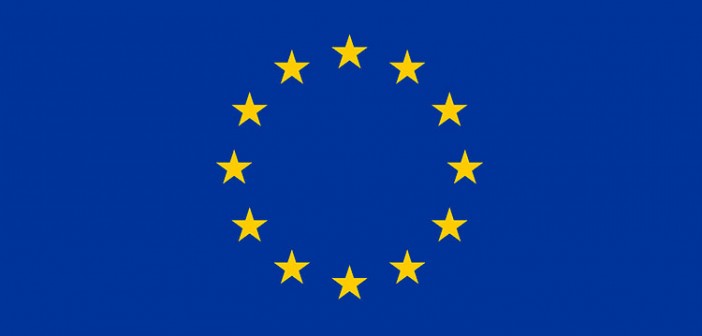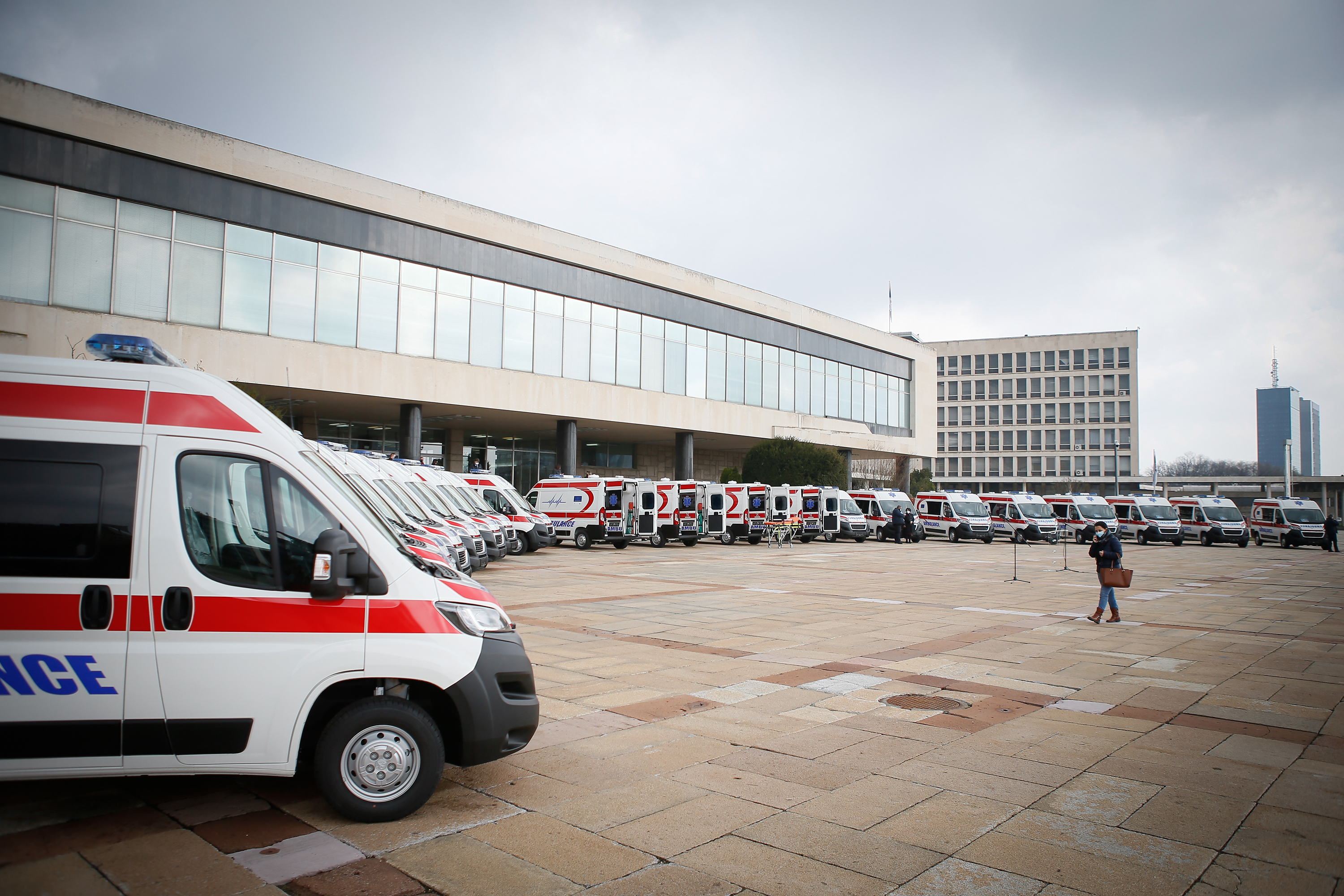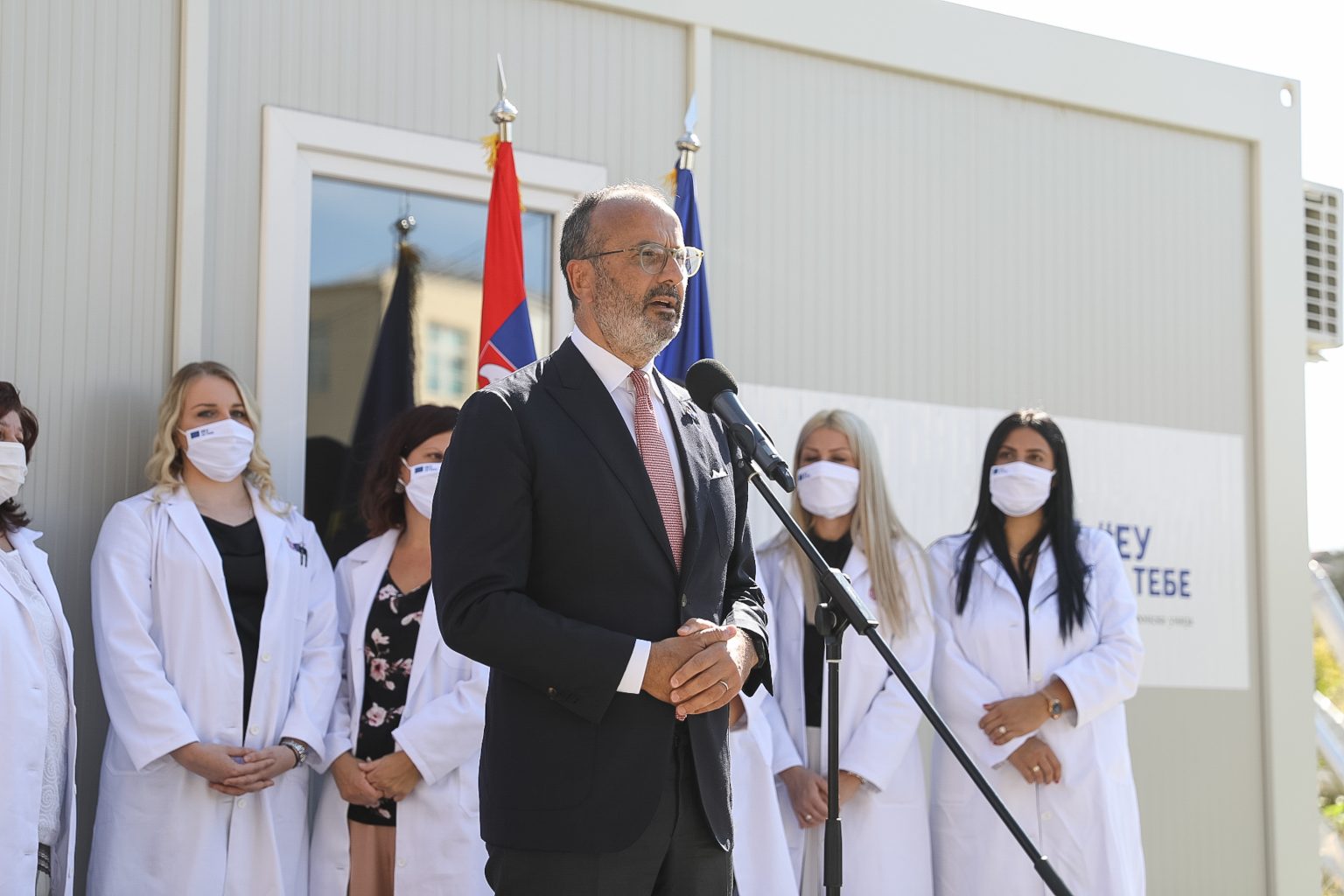
For a healthy Serbia – EU provides additional 200 health personnel to fight COVID-19 across Serbia – long and successful track record of support in the health sector
The European Union has been standing with Serbia from the very beginning of the pandemic. By providing transport capacities, protective equipment, medical staff and financial aid as well as capacities to store and distribute vaccines the EU was fundamental in the fight against Covid 19 in Serbia. Once the pandemic broke out the EU quickly made available 93 million euros in March 2020: 15 million euros were allocated for emergency response to finance air planes which would carry protective gear, while 78 Million euros are allocated to medium term economic recovery for small and medium sized enterprises.
Transport of protective gear
One year into the Covid 19 crisis in Serbia, the EU organised 15 cargo planes, carrying over 721 tonnes of equipment needed to fight the virus. The cargo largely consisted of equipment and devices from China and India which were bought by the Government of Serbia or donated to Serbia while the EU covered the transport costs of these cargo flights in the amount of 7.1 million EUR. Many of the goods were also financed by the EU.
Medical Staff
The EU also financed 200 medical professionals within 25 health institutions for nine months. These qualified personnel shall be deployed assisting the existing health care staff until June 2021. One million euros from the IPA II fund were set aside for the engagement of 200 professionals who are deployed into the health teams, consisting of one doctor, two technicians and one administrative worker. Young and unemployed experts from all over Serbia had the opportunity to apply for this programme. All the employees also got necessary uniforms from the EU.
In total, from September 2020 to February 2021, the medical staff in question helped 1,648,844 people.
A total of 32 fully equipped ambulance vehicles were delivered to hospitals and emergency care departments from November 2020 until March 2021 to help overcome the crisis overwhelming the health system and caring for both Covid and non-Covid patients alike. This was in addition to 252 ambulances the EU had provided to Serbia before the pandemic.

In addition to the transport cost the EU invested an additional 10.55 million into the purchase of medical goods for Serbia.
Medical goods and protective gear
• Protective Medical Face Masks (standard type) (800,000), intended for personal respiratory protection of medical personnel in health institutions, were delivered on 18 April 2020.
• Infra-red thermometers (300) are non-contact handheld cutaneous devices for fever screening during the COVID-19 global emergency. The full contingent was delivered on 17 April 2020.
• Stationary oxygen concentrators (100) improve access to oxygen therapy thus reducing COVID-19 mortality associated with hypoxemia. The full contingent was delivered on 23 April 2020 and was further allocated to health institutions across the country according to needs assessed by the Ministry of Health and the World Health Organisation.
• Containers with furniture for triage and emergency care (140) allow the triage of patients while preventing the access of potentially infected persons to health care facilities. Medical equipment for containers is also provided and consists of a bed for examination, a table with two chairs, a contactless thermometer, smaller containers for medical and infectious waste, and a waste bin.
• A real-time polymerase chain reaction i.e. Real-Time PCR machines (2) and reagents for 2019-nCoV tests (25.000) allow immediate COVID – 19 diagnoses after the test administration. Goods were delivered to Batut and Torlak institutes in Belgrade.
• Intensive care monitors (ICMs) (50) to supplement the existing equipment in the Intensive Care Units (ICU) to meet the increasing number of patients caused by the onset of COVID – 19 who are in need of acute and intensive care. All devices were further allocated to health institutions across the country according to needs assessed by the Government of Serbia.
• Devices for monitoring, ventilation, and anaesthesia (DMVA) (25) for short-term or long-term ventilation support with anaesthetic care of patients suffering from acute respiratory obstruction thus necessary in critical care management of COVID-19. They have been or will be allocated to health institutions in Serbia according to needs assessed by the Ministry of Health and the World Health Organisation.
• Devices for artificial ventilation (respirators) (50) are intended for ventilation support of patients suffering from acute respiratory obstruction, thus necessary in critical care management of COVID-19. All fifty (50) ventilators were further allocated to health institutions in the country according to needs assessed by the Ministry of Health and the World Health Organisation.
• The EU procured 33 refrigerators, 33 freezers and 12 deep freeze items to assist the country’s vaccination campaign – all items were delivered to health institutions throughout Serbia by 22 March.
• Tendering is ongoing for the procurement of 26 mini-vans in support of distribution of vaccines between the public health institutes in the country, delivery expected by end June 2021.
• A total of 1,000 dispensers with disinfectants will be delivered by end of May to all Serbian schools and kindergartens.
• A total of 32 fully equipped ambulance vehicles were delivered to hospitals and emergency care departments from November 2020 until March 2021 to help overcome the crisis overwhelming the health system and caring for both Covid and non-Covid patients alike.

Vaccination campaign support
In addition, the European Union has donated to Serbia a grant of over 27 million Euros to purchase vaccines from EU Member States as well as additional equipment which is relevant for the vaccination campaign. Serbia can also benefit from a EUR 7 million EU-funded project implemented by the WHO to support safe and effective vaccination in the Western Balkans. The project started in February and will also improve resilience against health emergencies and support in moving towards sustainable funding for universal health care.
Activities should include development and testing of emergency preparedness plans, training for health professionals and development of information management systems for vaccine roll out.
Support to Roma and vulnerable groups
The EU also invested aid for the most vulnerable groups during the Covid crisis, in particular the Roma community:
• 100,000 EUR in hygiene and essential foods packages for Roma settlements in 4 towns in Serbia (Belgrade, Nis, Subotica, Valjevo) were delivered by June 2020.
• Another 3,600 packages for the Roma and the vulnerable population including people experiencing homelessness for a total of 170,000 EUR were delivered by 2 March 2021.
• Women and elderly in remote areas – 100.000 EUR in hygiene packages to help such vulnerable people in 50 municipalities.
• Support for transit centres for migrants: 600,000 EUR for blankets, tents, mattresses, pillows, linen, bedsheets, gas heaters, folding tables, etc.
Support to the health sector before the pandemic
Even before Covid, the EU supported Serbia’s whole healthcare network: through the European Investment Bank – the EU Bank – funds in the amount of 250 million euros were used for the reconstruction and construction of 34 large hospitals across Serbia, including the Torlak Institute, which is crucial in the fight against the Corona virus.
Besides these favourable loans, in the last two decades, the Republic of Serbia received 200 million EUR grants from the EU – only for the health sector.